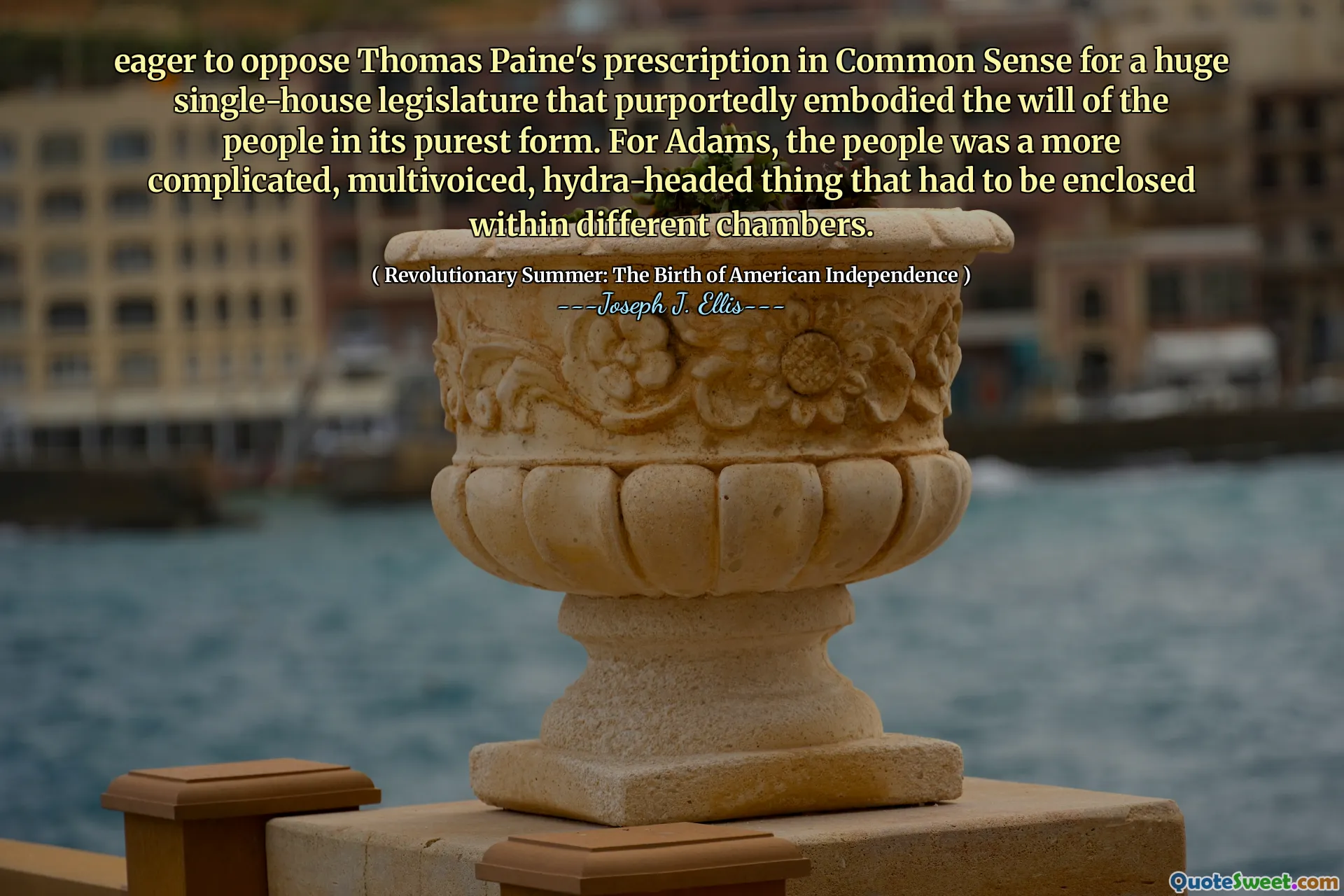
eager to oppose Thomas Paine's prescription in Common Sense for a huge single-house legislature that purportedly embodied the will of the people in its purest form. For Adams, the people was a more complicated, multivoiced, hydra-headed thing that had to be enclosed within different chambers.
In "Revolutionary Summer: The Birth of American Independence," Joseph J. Ellis discusses the contrasting views on governance during the American Revolution. Thomas Paine advocated for a large single-house legislature as the ideal representation of the people's will. However, John Adams strongly opposed this notion, believing that the concept of "the people" was multifaceted and complex.
Adams argued that a single legislative body could not adequately express the diverse interests of the population. He proposed a system with different chambers to better capture and represent the various voices within society, highlighting his belief in a more robust and nuanced form of governance. This disagreement reflects deeper ideological divides concerning democracy and representation during a pivotal time in American history.











